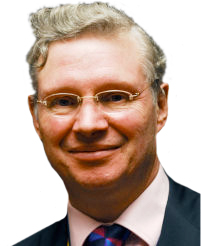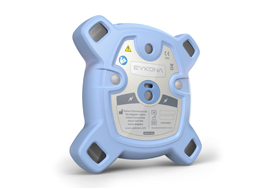H2O manages the Chariot Fund, a first in class, demand-led medical technology impact investment fund focused on commercialising disruptive telemedicine and point-of-care health (POC) technologies. By targeting both significant social impact and financial returns, the Chariot Fund aims to put private and public capital to work to address some of the major health challenges of the coming decades. The world spends £300bn annually on publicly funded research, but centralized and clinician-heavy western healthcare systems resist adoption of the disruptive 21st century technologies that would allow more efficient use of clinical time and the provision of sophisticated healthcare in the home and community*. In contrast, developing health economies like India embrace such innovation, allowing scarce clinical resources to go further and to reach beyond the urban centers to the rural poor. As with mobile phones, telemedicine and POC technologies allow countries like India to leapfrog the old infrastructure and pioneer adoption of cheaper, better and more robust ways of doing things.
To unlock the huge social benefits of these emerging health
technologies, the Chariot Fund exploits the deep clinical knowledge of world-class, not-for-profit clinical partners in India, and their ability to achieve social impact at huge scale. This is harnessed to H2O’s core skills to source, develop, productise and commercialise technologies from the £300bn annual publicly funded research spend. By accelerating reduction to practice of new technologies into these high needs healthcare systems, the Chariot Fund not only secures significant social impact, but can break down barriers and catalyse adoption in developed healthcare economies.
The Chariot Fund benefits from an advisory board of global stature, chaired by Lord Crisp, the former CEO of the UK NHS and former permanent secretary at the UK Department of Health
“The NHS is the biggest integrated health system in the world. When I retired in 2006 the Prime Minister Tony Blair asked me to look at what more the UK could do to support

improvements in healthcare in developing countries. There is indeed a lot the UK can do; more surprisingly there is a great deal that the UK can learn. Put at its simplest – people without our resources and, crucially, our vested interests and the restraining baggage of our history are innovating in ways that we aren’t. I am delighted that the team at H2O Venture Partners share my insights and are doing something about it, and I am very pleased to chair the Chariot Fund Advisory Board. I believe the Fund can create a strong pipeline of new technologies to benefit people in India, the NHS and globally.”
Sir Nigel Crisp
To unlock the huge social benefits of these emerging health technologies, the Chariot Fund exploits the deep clinical knowledge of world-class, not-for-profit clinical partners in India, and their ability to achieve social impact at huge scale. This is harnessed to H2O’s core skills to source, develop, productise and commercialise technologies from the £300bn annual publicly funded research spend. By accelerating reduction to practice of new technologies into these high needs healthcare systems, the Chariot Fund not only secures significant social impact, but can break down barriers and catalyse adoption in developed healthcare economies.
The Chariot Fund benefits from an advisory board of global stature, chaired by Lord Crisp, the former CEO of the UK NHS and former permanent secretary at the UK Department of Health.
*Nigel Crisp (2010)Turning the World Upside Down, RSM Press.

